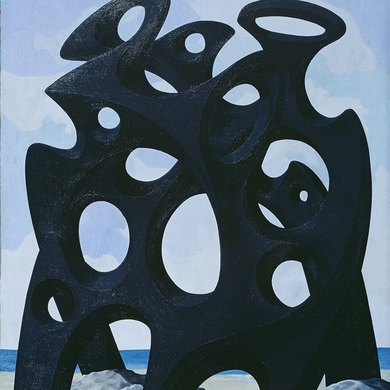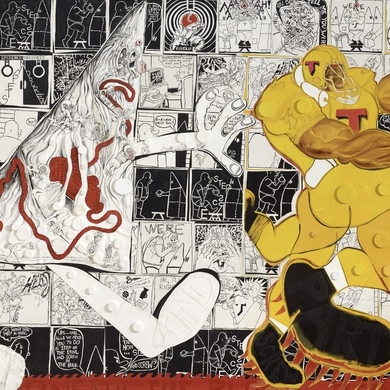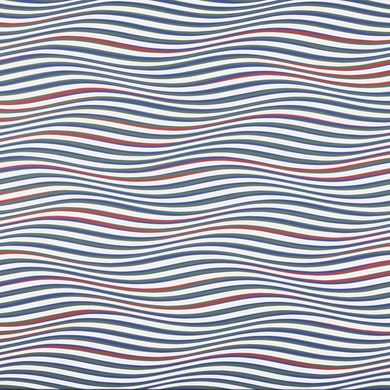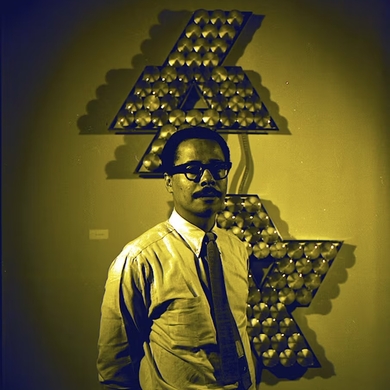One hundred years ago, in 1924, André Breton published his Surrealist Manifesto, which advocated for a revolution against rational thought and its constraints. Breton’s definition was simple: “Psychic automatism in its pure state,” he wrote at the time, “by which one proposes to express—verbally, by means of the written word, or in any other manner—the actual functioning of thought.” But psychic automatism could function in many ways. Salvador Dalí, for example, made spare landscapes that looked irradiated, melting. Max Ernst waded into abstraction. René Magritte let symbols speak of a numbing sameness in many souls. And Giorgio de Chirico’s ghostly plazas are places of haunting loneliness. In this exhibition, which celebrates the movement’s centenary, works by the greatest Surrealists are on view. The centerpiece is the manifesto itself. —Elena Clavarino
Arts Intel Report
Surrealism

Max Ernst, L’Ange du foyer (Le Triomphe du surréalisme), 1937.
When
Sept 4, 2024 – Jan 13, 2025
Where
Etc
Photo: Private collection/Ph © Vincent Everarts Photographie/© Adagp



